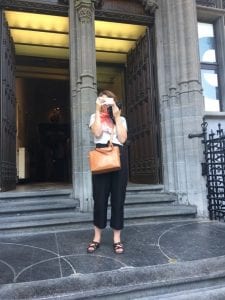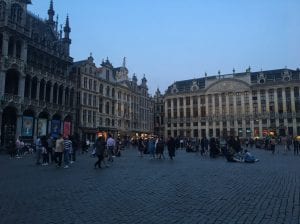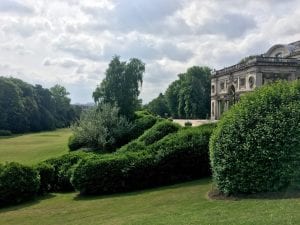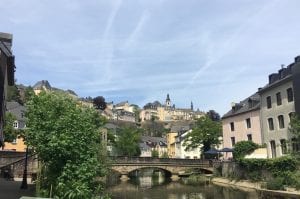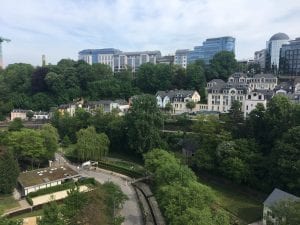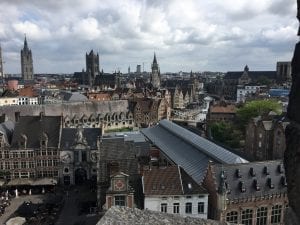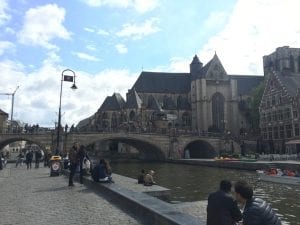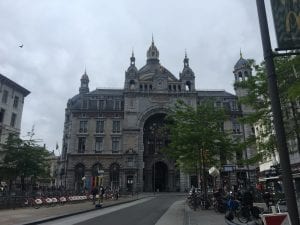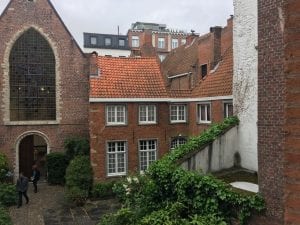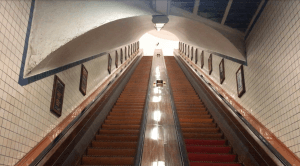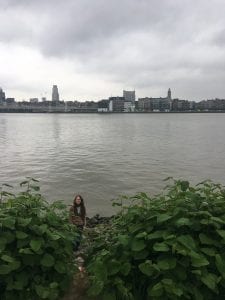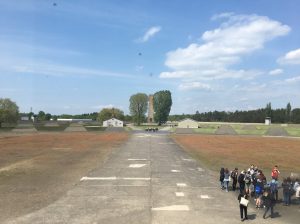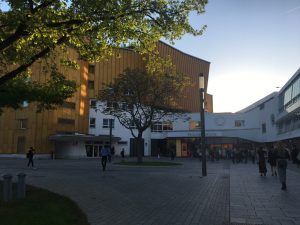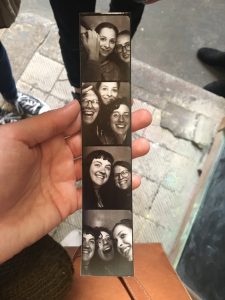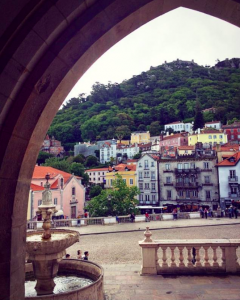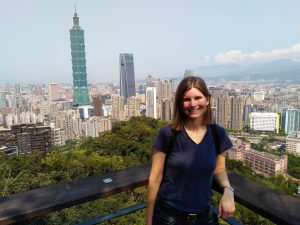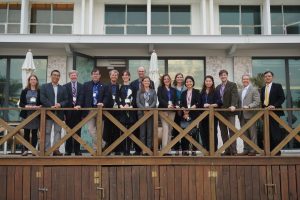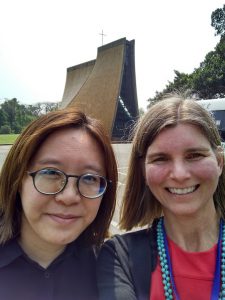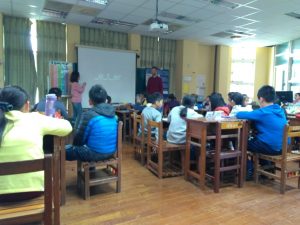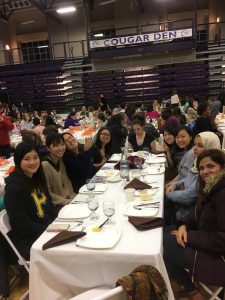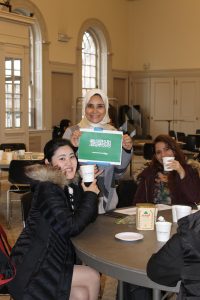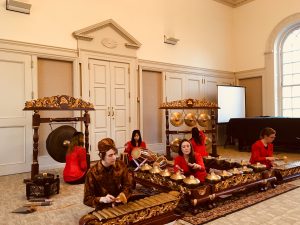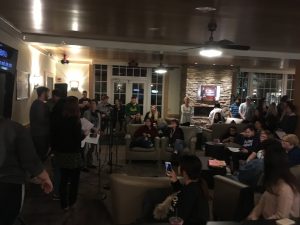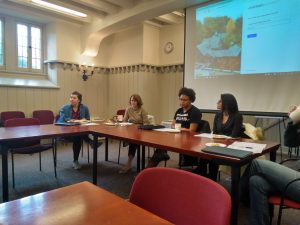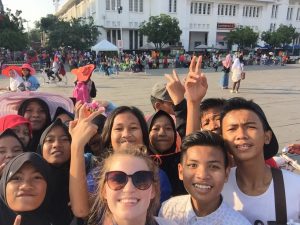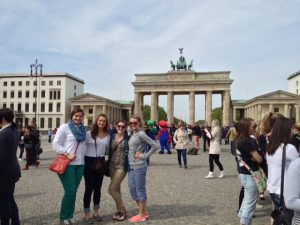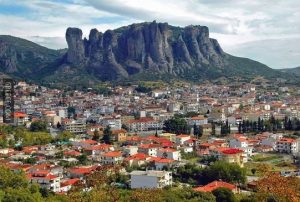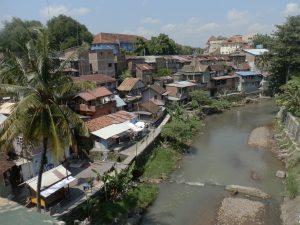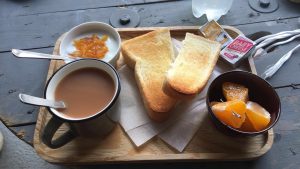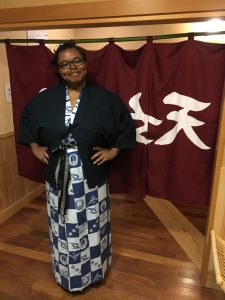By Melanie Landsittel, OIA Student Worker
Brussels
Hi again! I’m taking pictures of the Grand Place here, in Brussels. It’s a huge center where you’ll see amazing, gilded architecture, people playing music, sitting in groups, conversing, and also being touristy and taking pictures. I’ll show you what I mean in some pictures below:
As you can see Brussels is an extremely historic and beautiful city. It’s also extremely touristy, which can sometimes make trying to enjoy yourself like a local be tricky. But don’t worry, with a little bit of research and determination, all things are possible!
Ah, empty space—these grounds belong to the royal garden of Belgium, part of the royal family’s country home. They’re only open 3 weeks out of the year, and we were just lucky enough to make it in time. This was probably my favorite thing we did in Brussels, we left the immediate area of the city to get here which was really nice since it’s quite a crowded place.
In Brussels, we also visited several government offices, like the Flemish Parliament and the EU Parlimentarium. These two bodies were quite different, and gave us a little taste of some of the social issues facing Belgium, and the EU in general. Our tour guide of the Flemish Parliament building told us that, in Brussels, only about 10% of the people living in the city were born in the region. He elaborated briefly on the challenge immigration poses to the city, and to Flanders, in the opinion of the Flemish branch of the government. He also discussed the wealth divide between the French and Dutch speaking populations—Flanders is far wealthier than their southern counterpart of Wallonia, and has very different political interests than it as well. He even mentioned that the Flemish government has a bigger budget than the federal government of Belgium!
By contrast, the EU parlimentarium provided us with a walking tour through documents and pictures illustrating the history of the Formation of the EU, and the progress it has made as a governing body since its founding in the late 20th century through a series of treaties. They emphasized the need for Europe to work together to prevent conflict and empower all of its regions.
We were privileged to take several day trips during this program, one of them was to the beautiful place pictured above—Luxembourg City. Honestly, there’s no way for me to describe in words how beautiful Luxembourg is—it’s probably my favorite place I’ve ever visited on earth—just heavenly.
There are huge shifts in ground level, peaks and valleys all across the city, it reminds we of what I think towns in the Swiss alps would be like, yet Luxembourg is not like France, Germany, or Belgium really—it’s just entirely its own place, I felt like.
A group of us visited the city of Ghent, which was a beautiful small town, it felt much more like a Dutch city than Brussels, to me anyways.
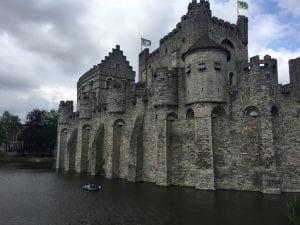
There’s an enormous castle in the center of Ghent, pictured above, which we immediately got in line to tour. There was an unexpectedly high number of creepy torture chambers, but we didn’t let that ruin it for us—we took the narrow winding stairwell up to the top and got an amazing view of the city, you can see in the picture below:
There happened to be an amazing outdoor food market while we were there, offering a huge variety of food, from the classic Belgian frites to kangaroo meat, to amazing vegan options like the sandwich that I had. We also had the frites—which were the best I had the whole program by the way. After collecting all of our food, we found an open spot on the canal, sat down, and let our feet dangle in as we ate—it was an absolutely perfect day.
Just to top it off, as we were about to head back to find the group, we passed underneath the beer market tent and from the DJ stand was blasting “Take me Home, Country Roads.” An alarming number of people were singing along—it was fascinating, and humorous, to say the least.
A third day trip we went on was to Brugge. The city was, at least to me, quite similar to Ghent but much more touristy. When we were in Ghent, I had wished that we took one of these little canal boat tours, so we tried to do that in Brugge, but the line was incredibly long, so we didn’t bother. Renting bikes is one thing that I would highly recommend in a place like this to get a good view of the city.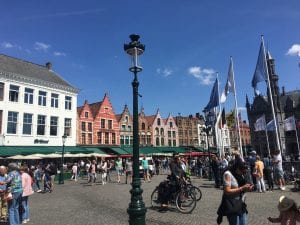
The last day trip that we went on was to Antwerp. It was cold and rainy, which seemed fitting for this beautiful port town. The train station is said to be one of the most beautiful in Europe—I absolutely agree with that assertion and included a picture below:
Right along the harbor in Antwerp is this museum called MAS, it’s pictured above. It’s extremely unique, the exhibitions are curated along narrative lines, rather than chronological or regional, so the way we’re learning about and absorbing the meaning of the art is really different—I found it very impressive.
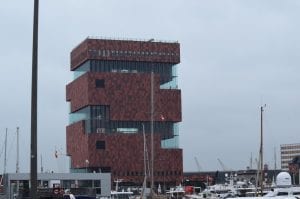
One exhibition dealt with the topic of urban agriculture and how to feed humanity, they gave solutions like growing algae on our bodies, eating rotten food with receptors that trick our senses and change the enzymes in our stomach, and growing meat in the lab (and all of these things are being done by the way!).
We also wandered into an art exhibition of Jan Vanriet. We think he was there, wandering the grounds and talking to people about his work—it could have been his personal home for all we knew. It was quite the day for art, as we also visited a large church with huge paintings by Peter Paul Rubens. From this day trip I think I learned that it’s important to have structured activities, as well to wander and let your curiosity guide you, it’s a balance.
At the end of the day, we visited this really odd, old escalator, it was wooden and ran slowly—I recommend visiting it, it’s called St. Anne’s Tunnel. The escalator leads you down to cross a 572-meter tunnel under the canal where you can get a great view of the city as pictured below:
Even though I feel like I spent more time outside of Brussels than within it, I do appreciate the city for its central location, it’s beautiful structure, and its vibrancy.
Melanie Landsittel is a senior at Chatham, majoring in Visual Arts: with a double concentration in Studio Art and Art History. Melanie works in the Office of International Affairs.
Interested in study abroad? Contact internationalaffairs@chatham.edu to find out about options available!

